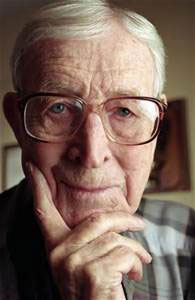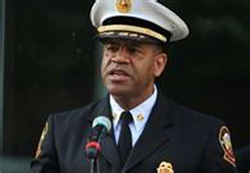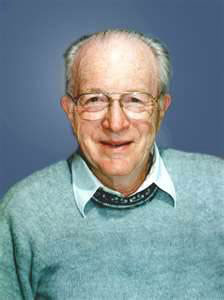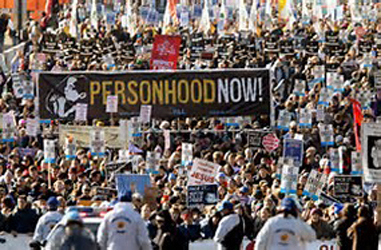“A Piece of My Mind”
May 2015 Newsletter from Donald Shoemaker
What Happened in Indiana? Religious freedom laws needed — and more civility too!
The whole situation created a legal and social climate totally unnecessary.
And the protection of religious liberty is arguably worse than before.
I wrote a Guest Commentary in the Long Beach Press-Telegram that was published on April 5. Please read it in this Newsletter.
Bible Insight – God’s Providential Care
 “Are not two sparrows sold for a penny? And not one of them will fall to the ground apart from your Father. But even the hairs of your head are all numbered. Fear not, therefore; you are of more value than many sparrows.” – Jesus (Matthew 10:28-31 English Standard Version)
“Are not two sparrows sold for a penny? And not one of them will fall to the ground apart from your Father. But even the hairs of your head are all numbered. Fear not, therefore; you are of more value than many sparrows.” – Jesus (Matthew 10:28-31 English Standard Version)
My wife and I have lovely front and back yards (mostly thanks to her hard work!). Roses and orchids and fountains and oranges and seasonal flowers—and many hummingbirds.
It is most pleasant to sit and watch the hummingbirds come and drink from the feeders or service the flowers. Sparrows and mockingbirds and bees and butterflies abound too. As we watch them, we think of God’s watchful care for them—and for us.
Recently I went into the backyard and picked up the remains of a little hummingbird. When birds die, they “fall to the ground” as Jesus described.Jesus’ point is: God cares for even these little creatures of his. Nothing happens without his providential attention.
Here Jesus uses what we call in logic “an argument from the lesser to the greater.” If God cares for the little birds (which he does), how much more doesn’t he care for each one of us—each of us made in God’s image and so much more valuable than a tiny bird, for as Jesus said we “are of more value than many sparrows.”(Some might charge Jesus with being a “speciest” here!)
God’s watchful care for us begins even before we are born (Psalm 139:13-16).
For you formed my inward parts;
you knitted me together in my mother’s womb.
I praise you, for I am fearfully and wonderfully made.
Wonderful are your works;
my soul knows it very well.
My frame was not hidden from you,
when I was being made in secret,
intricately woven in the depths of the earth.
Your eyes saw my unformed substance;
in your book were written,
every one of them,
the days that were formed for me,
when as yet there was none of them.
And when we face persecution for our faith, we should trust our heavenly father, who cares for us, and not fear our accusers and persecutors. That’s the key lesson from Jesus’ words. (He teaches the same lesson from the thought that God numbers our hairs—again, God is interested in the little things of our lives. With me, this is quicker counting than it used to be.)
At the end of our lives, God is still there to care (Psalm 23:4):
Even though I walk through the valley of the shadow of death,
I will fear no evil, for you are with me…
“God, I thank you for reminding me of important lessons—the value of little lives and the great value of people—each time I watch your little creation!”
(Hummingbird and butterfly pictures are from our yard.)
 “Congress shall make no law respecting an establishment of religion, or prohibiting the free exercise thereof, or abridging the freedom of speech, or of the press; or the right of the people peaceably to assemble, and to petition the Government for a redress of grievances.”
“Congress shall make no law respecting an establishment of religion, or prohibiting the free exercise thereof, or abridging the freedom of speech, or of the press; or the right of the people peaceably to assemble, and to petition the Government for a redress of grievances.”
– 1st Amendment
“No provision in our constitution ought to be dearer to man, than that which protects the rights of conscience against the enterprises of the civil authority.”
– Thomas Jefferson
Religious freedom laws needed — and more civility too: Guest commentary
By Donald P. Shoemaker
PUBLISHED APRIL 5, 2015, LONG BEACH PRESS-TELEGRAM
NOTE: I am adding more information and opinion in bracketed italics throughout this article. The original commentary by itself is available at my Website: www.donaldshoemakerministries.com/blog/?p=512
Great political unity, left and right, religious and secular, led to passage of the federal Religious Freedom Restoration Act (RFRA) in 1993. President Clinton signed it into law after it passed Congress with only three no votes.
[The three “no” votes were in the Senate: Robert Byrd (D-WV), Jesse Helms (R-NC) and Harlan Mathews (D-TN).]
The law simply said that the government could not substantially burden one’s free exercise of religion even if the burden was caused by a rule of general applicability, unless the government could show the rule furthered a compelling state interest and did so in the least restrictive way.
[The “compelling state interest” test sets a high threshold—in this case it is“a governmental interest of the highest magnitude that cannot otherwise be achieved without burdening the exercise of religion.” It was applied in earlier U.S. Supreme Court decisions involvingan employee’s right to observe the “Sabbath” (Sherbert v. Verner) and the right of Amish parents to decide their children’s education (Wisconsin v. Yoder).]
Why was RFRA needed? Because of the widely criticized U.S. Supreme Court decision Smith v. Oregon in 1990. The court ruled that the First Amendment’s protection of the free exercise of religion didn’t extend to neutral laws of general applicability that happened to affect religious practices, only to laws directly targeting religious practices.
[One attorney specializing in religious liberty cases told me at the time that this decision rendered the “free exercise” clause in the First Amendment “dead language.” Justice Scalia wrote the majority opinion. He called the higher compelling state interest test a “luxury” we cannot afford and acknowledged this would put at a disadvantage those religious practices not widely practiced. I consider his decision to be very “statist”.
Justice O’Connor wrote a concurring opinion, but said that the reasoning in the majority decision was faulty. She added that laws of general application were more likely to burden religious belief than laws actually targeting religion.
Justice Blackmun gave, in my opinion, a stirring and compelling dissent: He argued that the “compelling state interest” and “least restrictive means” tests were “over the years painstakingly…developed…to test the constitutionality of a state statue that burdens the free exercise of religion.” “Until today, I thought this was a settled and inviolate principle of this Court’s First Amendment jurisprudence.”]
[It is interesting that just three years later, in 1993, a city ordinance that directly targeted a religious practice came before the Court. The Courtunanimously struck down an ordinance banning ritualistic animal sacrifices by the Santeria religion (Church of the Lukumi Babalu Aye v. City of Hialeah).]
The RFRA was passed to counter this decision. But in 1997 the Supreme Court overturned RFRA’s application to state and local statutes. In response, 20 states with more to come have passed their own versions of RFRA to support religious liberty at state and local levels.
[These state laws largely drew their wording from the original federal RFRA. Indiana’s law went beyond the federal law in a couple of ways, such as including a company, corporation, religious institution and other entities in the definition of a “person.” Legal articles differ on whether these were substantial expansions. But they certainly became part of the objections from businesses and the heated protests against Indiana’s law!]
[The Religious Land Use and Institutionalized Persons Act, passed in 2000, was another response to the overturning of RFRA. It gave property dedicated to religious purposes certain protections against local zoning restrictions. It also sets forth a broad understanding of what “religious exercise” is: “any exercise of religion, whether or not compelled by, or central to, a system of religious belief.”
Based on this religious land use law, an LGBT-affirming church in Bellflower, CA won a $1,750,000 settlement with the city on April 13, 2015. This ended the city’s insistence that the church provide a large number of parking spots while the city exempted a mortuary and a fire museum from the same parking regulation.]
What has happened to take us from the unity of 1993 to the acrimony of today? Why the intense opposition to Indiana’s new law? I offer two opinions and three proposals toward civility (but no longer unity).
First, I have watched erosion of support for religious liberty along with a growing lack of understanding of how important religious beliefs are to their adherents. Religion isn’t just an add-on that can be easily shelved. It is a sense of the Ultimate that goes to the core of one’s identity and conduct. Consciences formed by religious faith should not be burdened by the state (to require what faith forbids, or to forbid what faith requires), except in rare circumstances.
[Note the quote from Thomas Jefferson above. By “rare circumstances” I mean issues where the government can satisfy the “compelling state interest” test.
Negative secular reaction to the Supreme Court’s “Hobby Lobby” decision in 2014 is a prime example of eroding support for religious liberty. This decision was based on RFRA, not on First Amendment rights. Hobby Lobby is wholly owned by a deeply religious family who claimed the contraception mandate in Obamacare would obligate them to violate their core religious beliefs.
Additionally, we often hear government leaders speak of “freedom of worship” rather than the more expansive concept of “freedom of religion,” which certainly must include the right to live out your faith in the public arena. Exemptions to government edicts are talked about for “houses of worship” and clergy but not for other religious entities like church owned/operated schools, hospitals, and social agencies. Nor are religious laypeople given the exemptions that clergy have. Are they less “religious”?]
Second, LGBT issues were not on the table when the original RFRA was passed. The interfacing of these issues with many traditional religious beliefs has not been gentle, to say the least. Both sides are wary of the other. And those with religious convictions contrary to same-sex marriage are now moved to prevent violation of their own consciences.
[This is not to say that there were no LGBT issues at that time. Remember the military’s “don’t ask, don’t tell” policy? But I doubt there was any reference to LGBT issues when the original RFRA was passed.]
Now I have three proposals for navigating these troubled waters with civility. The first is a call for clarity. Have critics and proponents of Indiana’s RFRA taken the time to read it? To read dispassionate analyses? The acrimony of recent days has been long on harsh polemic and short on clarity.
The second is a call for conversation. Are we talking to the other side and learning what each side’s concerns and understandings are? Or are we convinced we already know all the facts and what motivates the other side? An anti-gay sign, “God is your enemy,” and a sign held up in Indiana saying, “God and Muhammad are not real — your hate is,” are conversation stoppers, not promoters of civil discourse.
[Who can speak likehe or she is an expert on the motives in the hearts of others? Arguments that are “ad hominem”—labeling the person rather than addressing the issue—should be challenged as such whenever they are used.]
I’m an evangelical Christian with deep concerns over freedom of conscience issues. I can articulate these. I can also listen to perceptions others have about religious domination and laws they see as promoting discrimination.
A call for candor is third. However religious freedom laws address discrimination, the fact is these laws provide a defense that says, “Not so fast! The free exercise of my faith is being burdened and you have hurdles you must achieve before it can be limited.” Proponents should acknowledge this.
Critics should not charge that RFRA is a blank check for wide discrimination by those who merely use religion as a veneer. Nor should they ignore the burdening of the free exercise of religion taking place, probably to a degree the nation’s founders never intended.
The need for restoration of religious freedom shouldn’t exist, but it does. Robust religious liberty is our heritage. It must flourish alongside disagreement, neither suppressing nor being suppressed by the other.
Donald P. Shoemaker is pastor emeritus of Grace Community Church of Seal Beach
Don’s Recent &Upcoming Ministries
 “Lord, I Need Your Help to Forgive!”
“Lord, I Need Your Help to Forgive!”
You may listen to my sermon on the forgiveness petition of “The Lord’s Prayer”, delivered at Grace Community Church of Seal Beach on March 22, at:
http://www.gracesealbeach.org/media.php?pageID=28
April 15 – Lead a discussion on clergy-congregant relationships at the Long Beach Religious Leaders Association
April 28 (6:30 p.m.) and May 1(9:30 a.m.) – Speak at women’s Bible study groups at Grace Community Church on Matthew 28:16-20 (the “Great Commission” Jesus gave)
Johann Sebastian Bach’s Mass in B-Minor
 Magnificent 75-voice chorale, splendid chamber orchestra, superb soloists—such was the treat when the Long Beach Chorale and Chamber Orchestra presented Bach’s majestic, Christ-honoring work on April 18-19.
Magnificent 75-voice chorale, splendid chamber orchestra, superb soloists—such was the treat when the Long Beach Chorale and Chamber Orchestra presented Bach’s majestic, Christ-honoring work on April 18-19.
Thanks to these fine singers and musicians for the excellence. As for Bach himself, I say as he would say,
“Soli Deo gloria—to God be the glory.”
A very blessed and joyous springtime to all.
And a prayer of thanks for our mothers on May 10!
“A woman who fears the Lord is to be praised.”
– Proverbs 31:30
www.donaldshoemakerministries.com



















